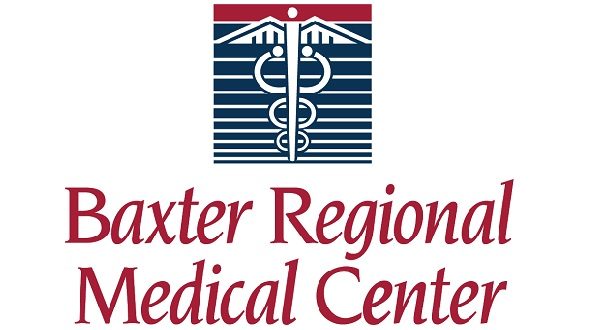
The three Baxter Regional Medical Center physicians appearing on a Facebook Live chat Thursday had a simple message for the Twin Lakes Area: Go get vaccinated against COVID-19 to protect yourself and help the community.Family medicine physician and Baxter County Health Officer Dr. Kevin Adkins, internal medicine and infectious disease physician Dr. Raymond Bandy and pulmonologist Dr. Brian Malte spent 30 minutes on camera answering questions about the COVID vaccines. The question-and-answer session, which was broadcast live on KTLO FM 97.9, can be seen online at BRMC’s Facebook page or heard at ktlo.com.
The social media panel was organized by Baxter Regional, which is co-hosting a community-wide COVID vaccine event with Arkansas State University-Mountain Home and the Baxter County Health Unit on Monday from 10 a.m. to 2 p.m. at the Vada Sheid Community Development Center on the ASU-MH campus.
Listen:
Thursday’s Facebook Live panel was organized by Baxter Regional to address many misconceptions and myths about the COVID vaccines.
With 340 million doses having now been administered, Bandy said there was nothing experimental about the vaccines.
Listen:
The COVID vaccines are being administered under an emergency order by the Food and Drug Administration and have not received official FDA approval yet. Malte said that lack of full approval was due to paperwork, not an indication that the vaccines were unsafe. He said FDA approval for vaccinations takes a year or more to complete, and than such approval might be issued later this fall.
The delivery systems used in the COVID vaccines were developed more than 10 years ago to immunize people against respiratory illnesses like SARS and MERS.
The two most popular vaccines, developed by Pfizer/BioNTech and Moderna, use messenger RNA to deliver information about the coronavirus into cells to stimulate the production of antibodies. The physicians said using messenger RNA does not affect or change the DNA of someone receiving a vaccine.
Adkins describes how the messenger RNA delivery system works.
Listen:
The vaccines stimulate antibodies to fight off a potential coronavirus infection, but the vaccines do not give the recipient COVID or directly make them sick.
Malte talks about the misconception of the vaccine making someone sick.
Listen:
Adkins said there are 100 cases of people dying after receiving a vaccine, with those deaths being attributed to allergic reactions to the vaccine’s ingredients. With 340 million doses being administered, the chance of having a fatal reaction are an extreme longshot.
Bandy pointed out that when the vaccine is administered patients are monitored for 15 minutes for any potential adverse reactions. Healthcare workers also have EpiPens and Benedryl readily on hand should anyone have a negative reaction from a vaccine injection. Bandy said the Baxter Regional Internal Medicine and Infectious Disease Clinic, where he practices, administers COVID vaccinations daily and has yet to see a patient have an allergic reaction.
The physicians said the idea that the COVID vaccines contain some sort of microchip did not hold up to scrutiny.
Malte and Adkins talk about the myth of the vaccine containing some sort of microchip.
Listen:
Malte said if someone is pregnant or trying to conceive, they should consult with the physician about whether a COVID vaccine is suitable for them. Adkins mentioned that 2,700 pregnant women that have been vaccinated are currently being tracked as part of a nationwide study, and that no problems have been reported from this study group.
Some of the other topics discussed on the Facebook Live panel included whether someone could have COVID after being vaccinated, whether the vaccines had been developed too fast, if someone still needed a vaccine if they had previously had COVID, if the vaccine was safe for someone seriously ill or recovering from major surgery, whether the vaccine was suitable for those aged 12-17, when the vaccine could possibly be opened up to those 11 or younger, and antibody infusions from patients that had previously had COVID.
Monday’s community vaccination event at The Sheid will use the Pfizer vaccine and is available for anyone 12 and older. Patients below the age of 18 wishing to receive the vaccine must be accompanied by a parent or guardian. Vaccine recipients will need to return to the same location in three weeks, on Monday, Aug. 16, from 10 a.m. to 2 p.m., for the second immunization.
The event will be held as a walk-in and appointments are not required. Masks are encouraged and appreciated, and everyone attending will be screened for COVID-19 symptoms upon entry. Please bring a photo ID and insurance card.
WebReadyTM Powered by WireReady® NSI










